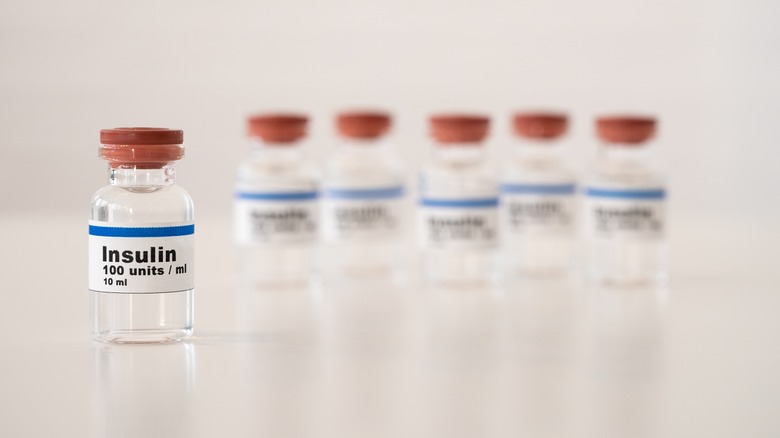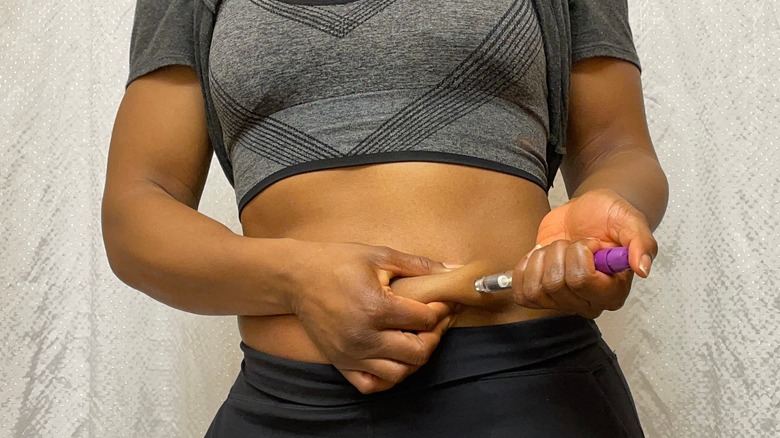Why Some Americans Are Rationing Their Insulin, According To A New Study
It's hard to imagine Americans rationing the amount of a life-saving drug they need to manage their illness. When it comes to insulin, however — a hormone that many people with diabetes need daily — that's exactly what's happening, according to a new study published in the Annals of Internal Medicine.
Those with diabetes either don't produce enough insulin or their body does not use it properly (via Mayo Clinic). Insulin is the hormone that helps the cells use blood sugar for fuel. If you don't have enough of it or your body isn't using it correctly, it can lead to a buildup of sugar in the bloodstream. This can cause dangerous health problems, with potential complications like heart disease, kidney damage, neuropathy, eye and foot damage, and even death. Mental health issues are also a concern for those with diabetes.
It's critical for people with diabetes to have access to insulin in order to control their blood sugar levels, according to the American Academy of Family Physicians. Most people with diabetes need at least two shots per day, which are generally taken before a meal.
The disastrous effects of high insulin prices
If those with diabetes don't get the proper amount of insulin, they lack the ability to manage their blood sugar (via Healthline). This lack of glycemic control is linked with health complications and even escalated mortality. Now, a new study published in the Annals of Internal Medicine from the Harvard Medical School and Hunter College has found that 1 in 5 Americans, or 1.3 million Americans, rations their insulin. Often, this is due to the astronomical cost of the drug. In the United States, insulin is two to three times more expensive than in other countries around the world. In other high-income countries where a national healthcare system is standard, just 5% of citizens ration their insulin.
The recent Inflation Reduction Act capped insulin copays at $35 for those with Medicare, which mostly benefits those over the age of 65. However, researchers found that only 11.2% of patients in that age bracket are rationing their insulin. Rationing is more prevalent among those younger than 65 years old, at 20.4%. These younger folks don't have access to Medicare, but the act doesn't apply to private insurers, which may explain the higher rate of rationing insulin.
Not being able to afford insulin has disastrous effects on both physical and mental health, and can even lead to death (via NBC News). As insulin prices continue to rise, Americans are making difficult decisions — and begging Congress to lower these high drug prices.


